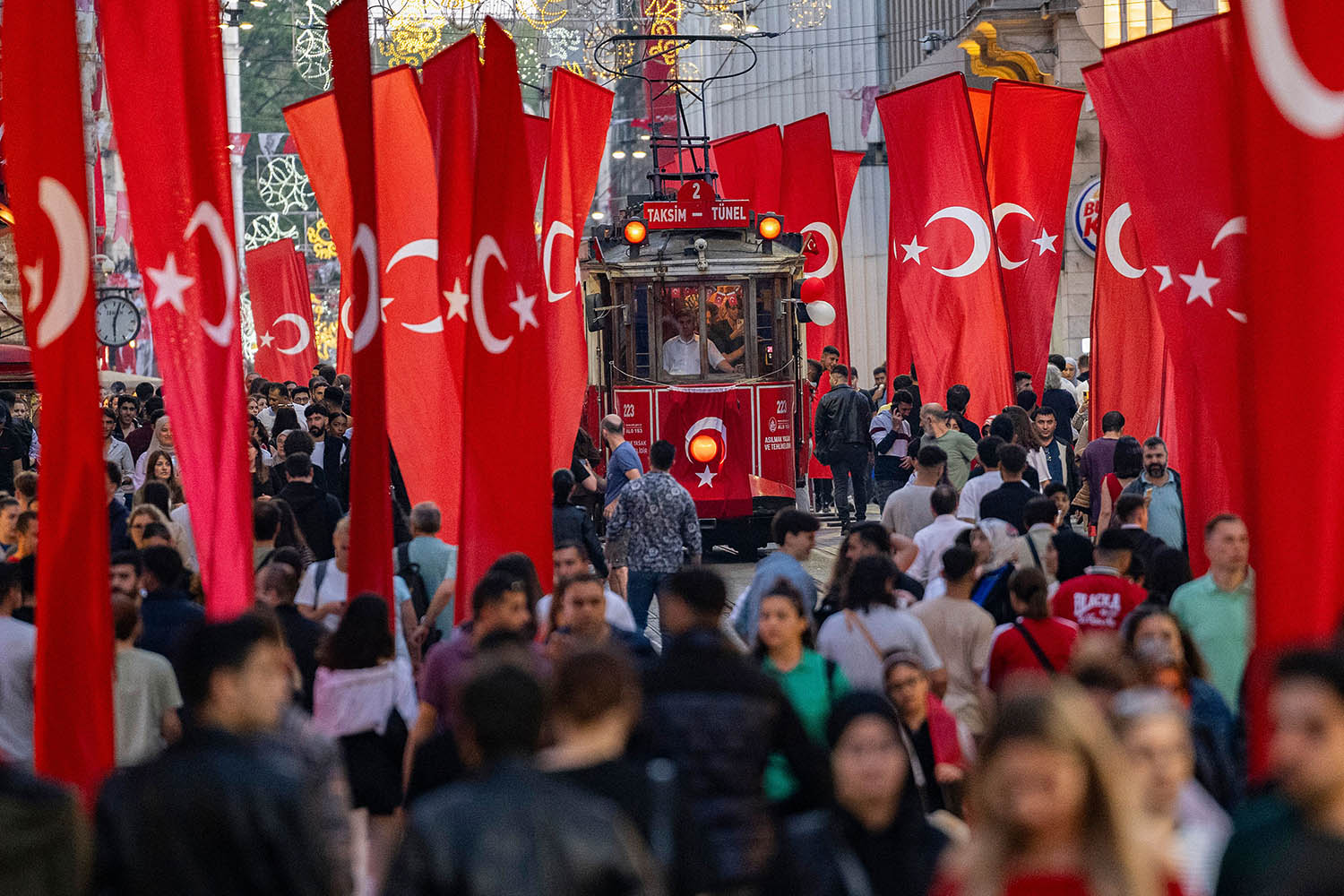The protagonists of Ayşegül Savaş’s novels are rootless cosmopolitans: footloose women on somewhat anxious journeys of self-actualisation, figuring out their lives in a European city. In Walking on the Ceiling (2019), Nunu moves from Istanbul to Paris after her mother’s death, befriends an older male novelist, and starts accompanying him on long walks around the city. The unnamed narrator of White on White (2021) moves to an unnamed city to study “Gothic nude sculptures of the 12th and 13th centuries”, but ends up in a neurotic bond with her landlady, a painter. “In the year that I lived there,” the narrator later reflects, “I had the sense of having stepped inside another life.”
Savaş was born in Istanbul and grew up in Turkey, Denmark and England. She went to university in Vermont and lived in San Francisco for a few years before settling down with her husband in Paris. The breezy stories in Long Distance, Savaş’s first collection, revolve around women in foreign cities.
In Twirl, a woman warms to online dating after years of avoiding the apps, but feels cheated when she discovers that the men she encounters have learned their pickup moves from a website: “Not quite a lie but a deliberate presentation of facts.”
Lea, the protagonist of the title story, moves to Rome to take up a postdoctoral fellowship at a university. When her new boyfriend, Leo, visits her from California for a weekend, she is disappointed at his reluctance to show physical affection. His natural reserve and unwillingness to risk saying something wrong makes her “feel invisible”.
Elsewhere, it is because of men that Savaş’s women enter what a character calls “the realm of misfortune”. In Layover, at a breakfast reunion between two Turkish friends in Paris, we learn that one of them has just got engaged. But the cheerful mood quickly sours once it’s revealed that her fiance has been diagnosed with a condition that will eventually make him go blind. “But it’s so special that you stayed together,” the single person tells her friend. “It’s really wonderful of you.” The typical Savaş protagonist is too self-absorbed to realise when they are being unkind. Love can soon become an encumbrance, family can start to resemble a set of clothes you outgrow.
The succinct form of the short story suits Savaș’s plots, which turn on encounters and small surprises
The succinct form of the short story suits Savaș’s plots, which turn on encounters and small surprises
The narrator of Freedom to Move arrives in Istanbul to see her fractured family, safe in the knowledge that she won’t stay for long. Even as a child, she remembers, freedom was synonymous with a desire to leave home. Her grandfather’s Georgian carer, on the other hand, yearns to be reunited with her husband and son back in her home town, so that “we don’t have to dream of things far away”.
Female narrators in unspecified European cities bring to mind Rachel Cusk’s Outline trilogy, although Savaş’s heroines are younger (mostly millennials) and more precariously placed in the urban gig economy. In The Room, Leyla lives in Paris and pays her bills through working as a private tutor for rich kids, though she introduces herself as a writer to her landlord. Her friends, too, perceive themselves as artists and film-makers despite frittering away their weeks in soulless “bullshit jobs”. In their quest to become “more like the image of ourselves that we envisioned”, they fixate on shallow appearances.
In Future Selves, an expat couple shortlists prospective apartments by walking around the neighbourhood and identifying the cafes they might hang out in. Ignoring their limited finances, these people shop in fancy organic stores and meet friends for drinks in agreeably lit wine bars. You wouldn’t catch them dead at a clearance sale or a dingy pub.
If there is a criticism of these stories, it’s that sometimes their outlines appear too sharply defined. The contrast between, say, the carer and the narrator in Freedom to Move, or Lea and Leo in Long Distance, feels too neat. But the succinct form of the short story suits Savaş’s plots, which turn on encounters and small surprises (two of the three novels she has published so far began as stories for the New Yorker). Savaş’s best work displays her instinctive talent as a miniaturist.
Long Distance by Ayşegül Savaş is published by Scribner (£14.99). Order a copy from The Observer Shop for £13.49. Delivery charges may apply
Newsletters
Choose the newsletters you want to receive
View more
For information about how The Observer protects your data, read our Privacy Policy
Photography by AFP/Getty Images
